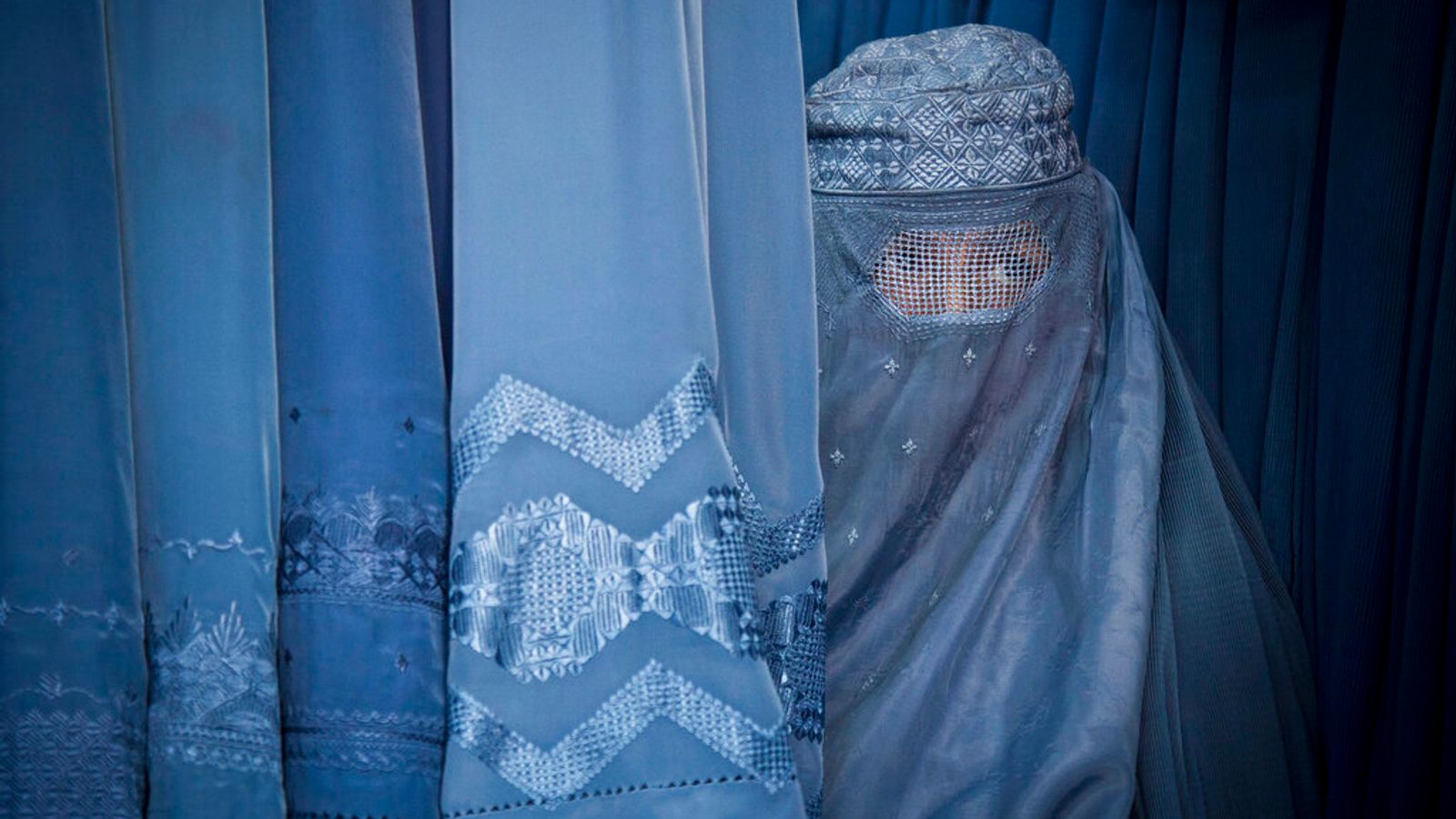The Taliban’s swift return to power in Afghanistan has refuelled fears over the group’s extreme interpretation of Sharia law which could further restrict the rights of women and girls.
Afghans have been trying to flee the country in shocking scenes at Kabul’s main airport over fears of what a future would look like under the Taliban’s regime – with some losing their lives in the process.
Many people distrust the Taliban and fear that their rule will be violent and oppressive.
But in a news conference on Tuesday, a Taliban spokesman said the group is now committed to the rights of women within the framework of Sharia – a religious law forming part of the Islamic tradition.
What is Sharia law?
Sharia law is Islam’s legal system – which is based on the Quran and the rulings of Islamic scholars – and acts as a code of conduct for modern Muslims to adhere to, ensuring they abide by God’s wishes in all areas of life from daily routines to personal beliefs.
In Arabic, Sharia actually means “the way” and does not refer to a body of law.
Sharia law fundamentally relies upon teachings from the Quran and the Sunna – the sayings, teachings and practices of the Prophet Mohammed.
It also draws from Ijma’a, the consensus of Muslim scholars, as well as Qiyas, reasoning through analogy.
But Sharia law can impact every aspect of life for Muslims depending on how strictly it is followed.
“There are so many varying interpretations of what Sharia actually means that in some places, it can be incorporated into political systems relatively easily,” according to Steven A Cook, of the Council of Foreign Relations.
Some interpretations of Sharia law are used to justify cruel punishments including amputation and stoning, as well as unequal treatment of women in inheritance, dress, and independence.
How it is interpreted and applied can vary among Muslim states – with crimes falling into three categories:
Hudud crimes include theft, highway robbery, adultery and drinking alcohol and carry penalties that include the amputations of hands and feet, flogging and death, but severe punishments are rarely carried out due to the high levels of proof required.
“In reality, most Muslim countries do not use traditional classical Islamic punishments,” said Ali Mazrui of the Institute of Global Cultural Studies in a Voice of America interview.
Examples of such Tazir offences include thefts among relatives or attempted but unsuccessful robbery, as well as false testimony and loaning money.
Qisas is the Islamic term interpreted to mean “eye for an eye”. In the case of murder, qisas gives the right to take the life of the killer following a conviction, if the court approves.
Taliban interpretation of Sharia law
The Taliban was condemned internationally for enforcing a strict and extreme version of Sharia law during its rule from 1996 to 2001, which included administering punishments such as public stonings, whippings and hangings.
The militant group also banned music and musical instruments, with the exception of the daf – a type of frame drum – and cut off the hands of thieves and stoned adulterers.
Along with their allies, they committed massacres against Afghan civilians, denied UN food supplies to 160,000 starving people, and conducted a policy of scorched earth – burning vast areas of fertile land and destroying tens of thousands of homes.
Please use Chrome browser for a more accessible video player
Under the Taliban’s ruling, activities and media including paintings, photography and movies that depicted people or other living things were banned.
Many Afghans fear the Taliban will reimpose this harsh interpretation of Islamic law – leading to thousands of people trying to flee the country.
Impact on Afghan women
Under the Taliban’s rule, women were effectively put under house arrest as they were not allowed to work or have an education.
Women and girls from the age of eight had to wear a burka and had to be chaperoned by a male relative if they wanted to leave their home.
High-heeled shoes were also banned in case they excited men, homes with windows on the ground and first floor had to be painted over and women were forbidden to go on their balconies.
Photographing, filming or displaying pictures of females in newspapers, books, shops or the home was not allowed, place names that had “women” in were changed and women were banned from appearing on radio, TV or at public gatherings.
Women who disobeyed the rules, even if they had no male relatives to go outside with, were flogged in the street or in stadiums and town halls.
Women had their thumb tips cut off for wearing nail varnish and were stoned to death if they refused to declare loyalty to the Taliban. Anyone who broke the rules could be subject to humiliation, public beatings by the Taliban’s religious police or execution.
Afghan women’s fears are ‘real’
The Taliban have tried to present themselves as a more moderate force in recent years.
They have promised to respect women’s rights, forgive those who fought against them and prevent Afghanistan from being used as a base for terror attacks.
The militant group has said it “wants the world to trust us” and is not seeking revenge in Afghanistan after regaining control of the country.
Taliban spokesman Suhail Shaheen told Sky News that women in Afghanistan will have the right to work and be educated up to university level.
Asked if the Taliban promises to respect the freedoms of women, he said: “Of course… we are committed to women’s rights, to education, to work and to freedom of speech, in the light of our Islamic rules”.
Please use Chrome browser for a more accessible video player
But many Afghans and experts are sceptical of those promises.
Women’s rights activist Malala Yousafzai says millions of Afghan women and girls were educated in the last 20 years – but the future they were promised is “dangerously close to slipping away”.
Ms Yousafzai, who was shot in the head by the Taliban in Pakistan in 2015, wrote in a blog for The New York Times: “Like many women, I fear for my Afghan sisters.”
Given the Taliban’s history of “violently suppressing” women’s rights, she said Afghan women’s fears are “real”.
Follow the Daily podcast on Apple Podcasts, Google Podcasts, Spotify, Spreaker.
Sophie Walker, the founder of the Women’s Equality Party, told Sky News: “It’s very, very clear that women’s rights are being washed away. The women have disappeared from public life and that is really, really worrying.”






















